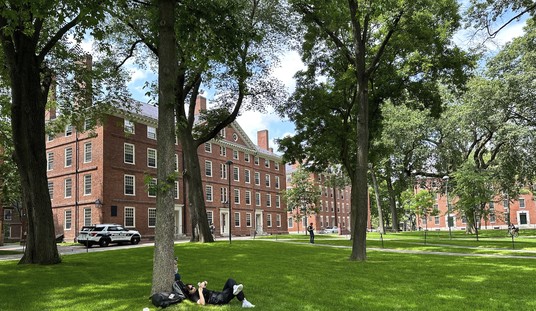The clock is getting closer to midnight in Europe with no trade deal in sight between the EU and Great Britain. Prime Minister Boris Johnson and European Commission President Ursula von der Leyen promise to keep negotiating with the former feeling more pessimistic about the outcome.
“As things stand, and this was basically what Ursula and I agreed, we are still very far apart on some key things,” the Prime Minister told Sky News admitting he expected ‘No Deal’ to happen. “But where there is life there is hope. The UK certainly won’t be walking away from talks, I think people would expect us to go the extra mile.”
Monday morning appears as the extra mile although whether that ends up extended remains questionable due to the fluidity of the situation. Theresa May’s Brexit framework fell apart in Parliament in 2019 although both groups finally reached terms in early 2020. The pandemic likely played a factor in the holdup on the trade deal, however, it’s not likely given the drama on the framework.
Whether a trade deal matters is up for debate but depends on which facet of Britain’s political-philosophical layer cake people read along with their frustration with Johnson.
“A deal is in the interests of both sides,” Andrew Rawnsley wrote in typically leftward The Observer on Sunday. “This is why, despite the gloomy noises coming out of both London and Brussels, some of the smart money is still betting on an agreement. The hope is that Mr Johnson will grasp just how much a catastrophe Brexit could cost him personally…Boris Johnson has a choice to make. He can strive to secure the thin deal available. That will steadily make Britain poorer than it would have been, but at least it avoids the calamity of a crash-out.”
Tories appear to fear the same as Labour.
“There are no cabinet heavyweights to warn the prime minister of the dire consequences of taking the UK to the edge of no deal, just yes-men and women who owe their political advancement to him,” Editors at conservative-aligned The Sunday Times warned this morning. “Nobody is warning of the potentially catastrophic damage to the car industry, the nightmare for many farmers and the potential loss of investment and jobs in large parts of the rest of the economy, or of the fact that a no-deal exit is not only about short-term disruption but also long-term economic pain. Mr Johnson’s assertion that Britain will “prosper mightily” in the event of no deal runs counter to all the evidence, including the government’s own.”
Classical Liberals are more skeptical about the impact of a No Deal Brexit.
“For all the high drama, though, the difference between a pretty thin trade deal and ‘no deal’ is not as stark as some might suggest,”
John Ashmore wrote at CapX.co. “That reflects the big shift in negotiating aims under Boris Johnson, whose deal is a world away from the kind of perma-alignment proposed by Theresa May’s government (a fact many ‘soft’ Brexiteers now wistfully acknowledge). And though the most ardent Brexiteers will see any agreement as a fearful capitulation, even with a deal we will be out of the single market and customs union, rid of the ghastly Common Agricultural Policy and outside the system of free movement. Whether you welcome that or not, these are undoubtedly substantial changes.”
One other thing worth noting from Ashmore in CapX, along with a piece in The Economist, is the future of Great Britain’s regulatory policy.
“[Johnson’s desire to eliminate tariffs] will do little to soothe the headaches that arise from leaving the single market,” The Economist opined on Sunday. “A project that promised to throw off the eu’s system of regulation will instead replicate it in miniature, creating a Brussels-on-Thames. Chemical firms, foreign airlines, lawyers and internet companies—all will face new burdens if they wish to keep doing business in Britain.”
A final thought from Ashmore. “The fact is we could have been far more laissez-faire while still in the EU, and that we will (more’s the pity) still be a typical high-tax, high-regulation Western economy once we have left. We might like to think of Brussels as the source of all red tape, but our own politicians don’t need much encouragement to stick their oar in.”
Observations worth noting as the trade deal deadline gets closer and closer.







Join the conversation as a VIP Member